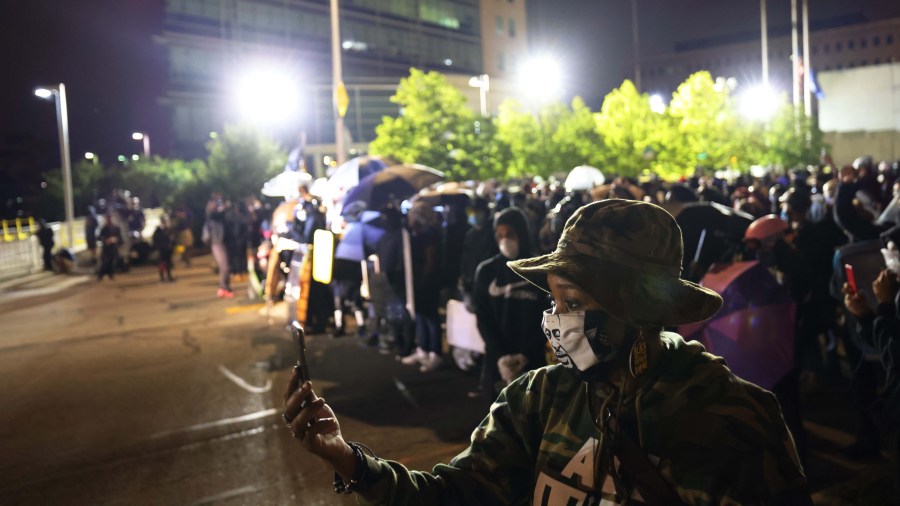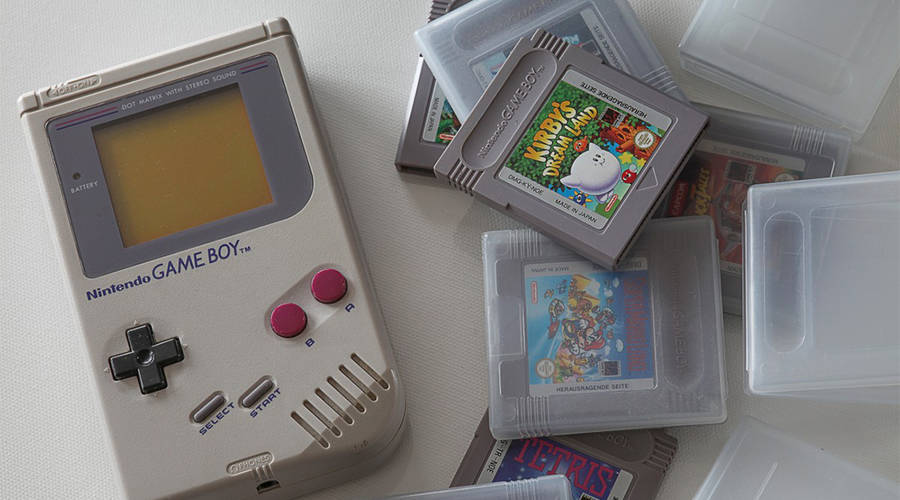Smartphone video was the key to convicting George Floyd’s killer. But why did it have to be?

As you’ve heard this week, a jury found former Minneapolis police officer Derek Chauvin guilty on all counts in the killing of George Floyd. The key to that case was the video taken by teenager Darnella Frazier with her smartphone.
I spoke with Allissa Richardson, a professor of journalism at the University of Southern California. She’s the author of the book “Bearing Witness While Black: African Americans, Smartphones, and the New Protest #Journalism.” And she argues that smartphones, in most people’s pockets, are a powerful tool for accountability. The following is an edited transcript of our conversation.
Allissa Richardson: When we think of the early ages of citizen witnessing, we think of how hard it was to do. And the watershed moment of George Holliday filming Rodney King’s historic and unfortunate beating — that video is now 30 years old and it was done by Handycam. So it was very difficult to gather that kind of footage before. And now, with the advent of cellphones and social media coupled together, it is very easy and inexpensive to not only record, but share.
Molly Wood: Is the kind of special aspect of the smartphone here that it changes the power dynamic, that it’s in the hands of everyday people and not a tool of governments?
Richardson: Yes. I think that one of the biggest changes here is that everyday people can bear witness. And it’s very difficult for families without these police videos to prove, for example, that Mr. Floyd didn’t just have a medical incident in a car, as the official police report said. And so with these kinds of videos that are done with cellphones, they have debunked how police are viewed by the public as the first arbiters of truth. And they’re also used to humanize, in many cases, the struggle that has had no face for a long time, but many people have known that that’s happened.
Wood: You’ve written about the responsibility, and even the burden that this documentation places on the Black community. There’s been an outpouring of support and calls for protection for Darnella Frazier, the 17-year-old who filmed George Floyd’s murder. Talk to me about that potential burden and the bravery that you mentioned that it takes to film these incidents.
Richardson: This is a historic moment because the cellphone allows African Americans to stay with the victim. And that real-time bearing witness has been greatly facilitated by the cellphone. But it’s a double-edged sword and also has the potential to traumatize and retraumatize those who stood behind that camera and pressed Record. We heard Miss Frazier say in the courtroom that she has nightmares and that she apologizes to Mr. Floyd for not being able to intervene in a more active way. But she did what she could. And so she belongs in the history books for sure, alongside the evolution of the smartphone as an evolved witness, as an evolved version of what we might consider a citizen journalist and certainly, as a brave young person.
Wood: I wonder if we will start to see that burden be more evenly distributed, if we will start to see scenarios in which the smartphone could be used not just to chronicle, but to shield. And that that responsibility will start to fall not just on the Black community, but white people who are around when these things are happening.

Richardson: I think that that’s an incredible question. And it really has made me question why we needed these in the first place. This week, I wrote an op-ed about are we doing more harm by perpetuating these? Because we have created an unintended vicious cycle of [going to victims’] families where we first ask them to pre-litigate their loved one’s demise. “Prove to me in video that they did not deserve to die at the hands of police.” That’s one. The second thing we ask them to do is “share that video with me. Let me pick it apart.” And so then the media pick it apart, even before it goes to trial — if it even goes to trial. And then, when it goes to trial, we ask them to allow those videos to stay online. So then, what you have is a loved one’s video circulating freely. And a loved one is entombed online forever for anyone who wants to look at it. And the fact that we felt it was OK to ask African Americans and people of color to prove that they didn’t deserve their own demise in the first place was a cruel endeavor.
Related links: More insight from Molly Wood
Professor Richardson wrote a piece in Vox published Wednesday that makes the argument above — that the question shouldn’t be, should everyone make sure they film interactions between police and Black people? Instead, the question should be: Why is the burden of proof so much higher when these killings or assaults occur? And how do we stop creating a loop, a body of footage, of people being killed or beaten that we show online or on television without thinking and that causes trauma every time? She calls for a moratorium on showing such videos without family consent.
The future of this podcast starts with you.
Every day, the “Marketplace Tech” team demystifies the digital economy with stories that explore more than just Big Tech. We’re committed to covering topics that matter to you and the world around us, diving deep into how technology intersects with climate change, inequity, and disinformation.
As part of a nonprofit newsroom, we’re counting on listeners like you to keep this public service paywall-free and available to all.
Support “Marketplace Tech” in any amount today and become a partner in our mission.


















